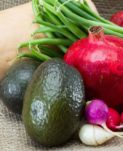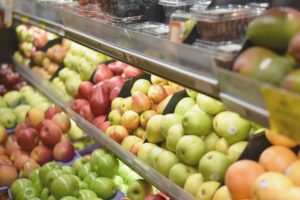Shoppers Guide to Pesticides in Produce 2023 Lists
The Environmental Working Group publishes its annual Shoppers Guide for buying produce. The 2023 guide includes data from 46,569 samples of 46 fruits and vegetables. The USDA peels or scrubs and washes produce samples before testing, whereas the FDA only removes dirt before testing its samples. Even after these steps, the tests still find traces 251 different pesticides. While it is a US study it may be helpful in choosing where to spend your organic food dollars.

Clean 15
- Avocado
- Sweet Corn (low levels of pesticides but may be GMO therefore choose organic if you can)
- Pineapples
- Onions
- Papaya
- Sweet Peas (frozen)
- Asparagus
- Honey Dew Melon
- Kiwi
- Cabbage
- Mushrooms
- Mangos
- Sweet Potatoes
- Watermelon
- Carrots
Dirty Dozen
- Strawberries
- Spinach
- Kale, Collard & Mustard Greens
- Peaches
- Pears
- Nectarines
- Apples
- Grapes
- Bell & Hot Peppers
- Cherries
- Blueberries
- Green Beans

To read more about the EWG and the food testing got to the Summary page.
But this is no excuse to skip your fruits and veggies! Conventionally grown is better than not at all but choose organic from the dirty dozen when you can. The benefit of fruits and vegetables outweigh the risk from pesticides even if they're not organic
Health Effects from Pesticides
Consumption of fruit and vegetables, organic or not, is critical to a healthy diet and good health. Research from Harvard University shows that consuming fruits and vegetables with high levels of pesticide residues may lessen the benefits of fruit and vegetable consumption, including protection against cardiovascular disease and mortality.
The EWG’s Shopper’s Guide, released every year since 2004, provides information about the fruits and vegetables with the highest and lowest pesticide residues, so consumers can make the best decisions for their families.
The Sierra Club also has a great Fact Sheet on Pesticides



